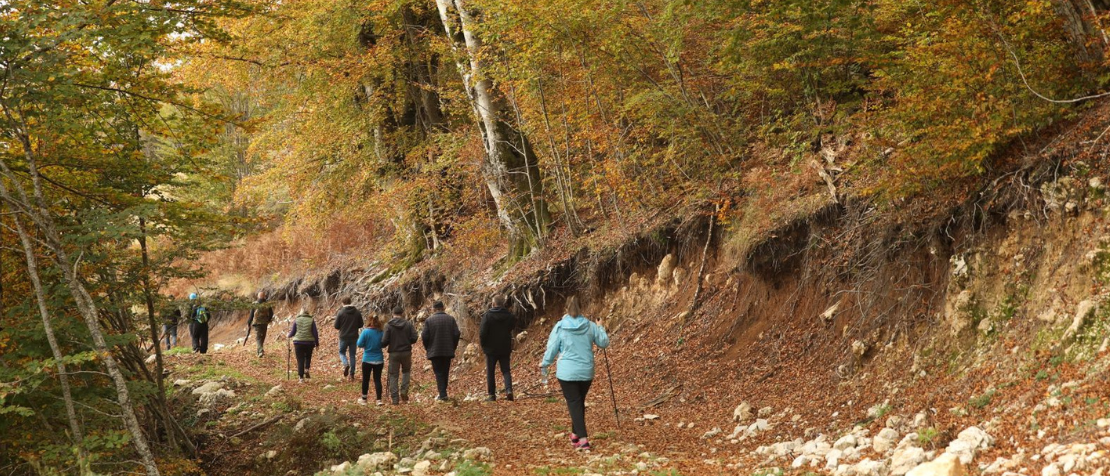FAO project paves the way for the Chestnut Route in Albania

©FAO/Fatjon Hoxha
Tropoja, a small municipality in northern Albania, is optimizing its rich natural resources to promote sustainable tourism and economic growth. The area is quickly becoming a destination for various tourist activities, and is well-known for its high biodiversity, picturesque views and tourism attractions.
As part of One Country One Priority Product (OCOP) programme of the Food and Agriculture Organization of the United Nations (FAO), “Sustainable Chestnut Value Chain Development”, the "Chestnut Route" was established to promote sustainable development in the Albanian Alps by capitalizing one of the area’s most distinctive natural products, chestnuts.
The hiking opportunity already awaits mountain lovers and those celebrating International Mountain Day (11 December) under the annual theme “Mountain solutions for a sustainable future – innovation, adaptation and youth”.
In line with the project’s components, the FAO initiative aims to place the chestnut as a valuable product in the domestic and regional markets, while also creating a friendly environment for nature enthusiasts and responding to a growing demand for unique outdoor experiences such as long excursions and slow-paced hikes.
The Chestnut Route is combined into two trails. Throughout these routes, visitors can find guesthouses offering traditional hospitality, accommodations, and authentic regional cuisine, showcasing the cultural and economic value of chestnuts to the local community.
The creation of “The Albanian Chestnut Route” tour sets chestnuts apart as a special product, widely available in the Albanian Alps. This initiative is an opportunity to promote sustainable chestnut value chains in the mountain areas and position chestnuts on the regional market. It adds to diverse activities meant to increase tourists’ interest in sustainable travel.
With the Chestnut Route and related FAO initiatives implemented in the country, the region is embracing its identity as a destination for sustainable mountain tourism, providing visitors with an impressive experience oriented towards local culture and tradition.
Sustainable natural resource management in mountain areas
Albania is a country rich in mountains that are up to 2 700 metres high. Unleashing their opportunities – including for the benefit of the local communities– requires a complex approach that unites economic, environmental, and social aspects.
With this in mind, on 7 November, an FAO training on the socio-economic vulnerability assessment, indicators and indexes helped further the sustainable management of natural resources in mountain areas of Albania.
Implemented by the Mountain Partnership Secretariat at FAO and financially supported by the Government of Italy through the Ministry of Foreign Affairs and International Cooperation, the project aims to improve the livelihoods of rural communities through the sustainable management of natural resources, with a specific focus on mountain areas.
The training sought to improve participants' theoretical understanding and practical skills in using a geographic information system and geospatial technology, and in developing a multi-dimensional index to analyze and validate socio-economic vulnerability.
Conducted online with the support of the Sapienza University of Rome, the overall objective of the training was to strengthen the capacity of national institutions to evaluate vulnerability of mountain communities and assist decision makers in prioritizing interventions and policy measures.
Albania is the fifth country to join the Italian-funded FAO project with this common intent, after Afghanistan, Kyrgyzstan, Montenegro and Pakistan. Next year, to mark the project's conclusion, representatives from the five countries will meet in a final in-person workshop, where they will be able to share the results and procedures adopted in each country.
